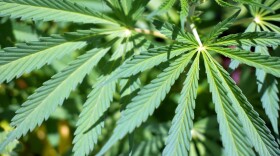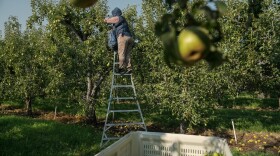As more Americans contemplate leaving booze behind, kava has become an alternative to drinking by offering similar effects without the consequences.
-
SNAP has about $6 billion in the contingency fund — short of the roughly $9 billion needed to cover a full month of the program, putting November benefits in jeopardy.
-
On "What's Health," we dive into the quiet struggles of depression and new insights into normal pressure hydrocephalus, the misunderstood neurological disorder afflicting musician Billy Joel.
-
Even before the shutdown put the spotlight on Congress and its fight over extending ACA tax, it had become increasingly difficult for Floridians to find affordable health care.
-
Florida A&M and FSU reached an agreement that would give FAMU one seat on the governing board of the potential new academic health center. Tallahassee State is continuing negotiations.
-
A study finds that expectant cockroaches deprived of sleep produce less milk and have longer pregnancies, offering surprising insight into how sleep loss can disrupt reproduction — even in humans.
-
KFF data shows that 2025 marked the first time in two decades that the annual cost of covering a family of four rose by 6% or more for three consecutive years.
-
A study out of UF and MD Anderson Cancer Center shows patients with advanced lung or skin cancer taking certain drugs lived longer if they also got a COVID shot within 100 days of starting treatment.
-
Mosquito inactivity begins when temperatures reach around 50 degrees, with mortality setting in as temperatures approach the freezing mark.
-
Ascension Sacred Heart Pensacola and Ascension Sacred Heart Emerald Coast are teaming with the Florida Department of Health to expand their maternit care program.
-
The kits are designed to jog memories and initiate conversation between patients and their caregivers.
-
The dashboard visualizes the shortage of behavioral health professionals in Florida.
-
A hearing that began Monday is slated to run through mid-February. The new licenses are required under a 2017 law that called for boosting the number of licenses as the number of eligible patients increases.
-
The 50-bed facility provides specialty rehabilitative services 24/7 for people with severe injuries and conditions, including strokes, brain and spinal cord injuries, and amputations.
-
Unpacking how data, when translated with empathy and precision, can cut through fear and misinformation, helping patients make informed health care decisions.






















